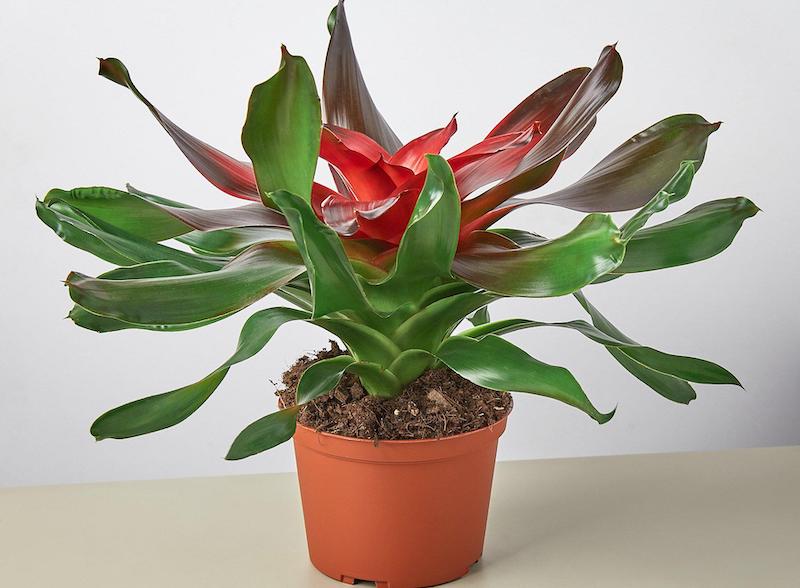Bromeliads are considered to be safe and non-toxic. They are nonpoisonous to humans and other animals, and can act as a barrier in front of any toxic houseplant like philodendrons. If an animal munches on bromeliads for too long, nausea and vomiting may occur. Another thing to consider is that the sap may cause itching or an allergic reaction on the skin in some individuals. Wearing gloves is recommended if you have a species with barbs on the margins of the foliage.

Are Bromeliads Poisonous to Children?
Bromeliads are non-toxic to humans. In fact, we eat the fruit of some bromeliads, such as the pineapple! In general, it’s good to keep houseplants like these away from children just in case they happen to be allergic.
Are Bromeliads Poisonous to Dogs?
The good news is that bromeliads have been declared safe and nontoxic to dogs by the ASPCA. Although bromeliads are nontoxic, this doesn’t rule out a possible allergic reaction. Just to be safe, keep your bromeliads and other houseplants away from pets. Pets tend to be attracted to some of the air plant varieties that look similar to grass. Eating them may cause an upset stomach.
Are Bromeliads Poisonous to Cats?
Bromeliads are not toxic to cats. Cats may be attracted to the grass-like foliage of some bromeliad species. Avoid placing these types of bromeliads in places where your cat may be tempted to munch on them.
Are Bromeliads Poisonous to Other Animals?
Bromeliads are nontoxic to other animals including horses. Snacking on houseplants can give animals an upset stomach, so avoid letting pets munch on them.
Symptoms Of Bromeliad Poisoning
Although bromeliads are nontoxic, an allergic reaction may occur in some individuals who touch the plant or its sap. A rash may also appear if you handle the spiny bromeliads without gloves.
Preventing Bromeliad Poisoning
Bromeliads aren’t considered poisonous. You can prevent houseplant poisoning by growing them out of reach of children and pets. Pets snacking on your plants may indicate a nutrient deficiency, so check with a vet if you suspect this is the case. You may also choose to use this plant in front of other dangerous plants as a buffer.
Pet Poison Helpline
If something were to happen to your furry friend, and you suspect that they are suffering from Bromeliad poisoning, there is a poison control hotline to call for 24/7 vet advice. It is called the Pet Poison Hotline, and their phone number is (855) 764-7661.
Sources: "Blushing Bromeliad." American Society for the Prevention of Cruelty to Animals. aspca.org
 |
Author Chris Link - Published 6-24-2023 |
